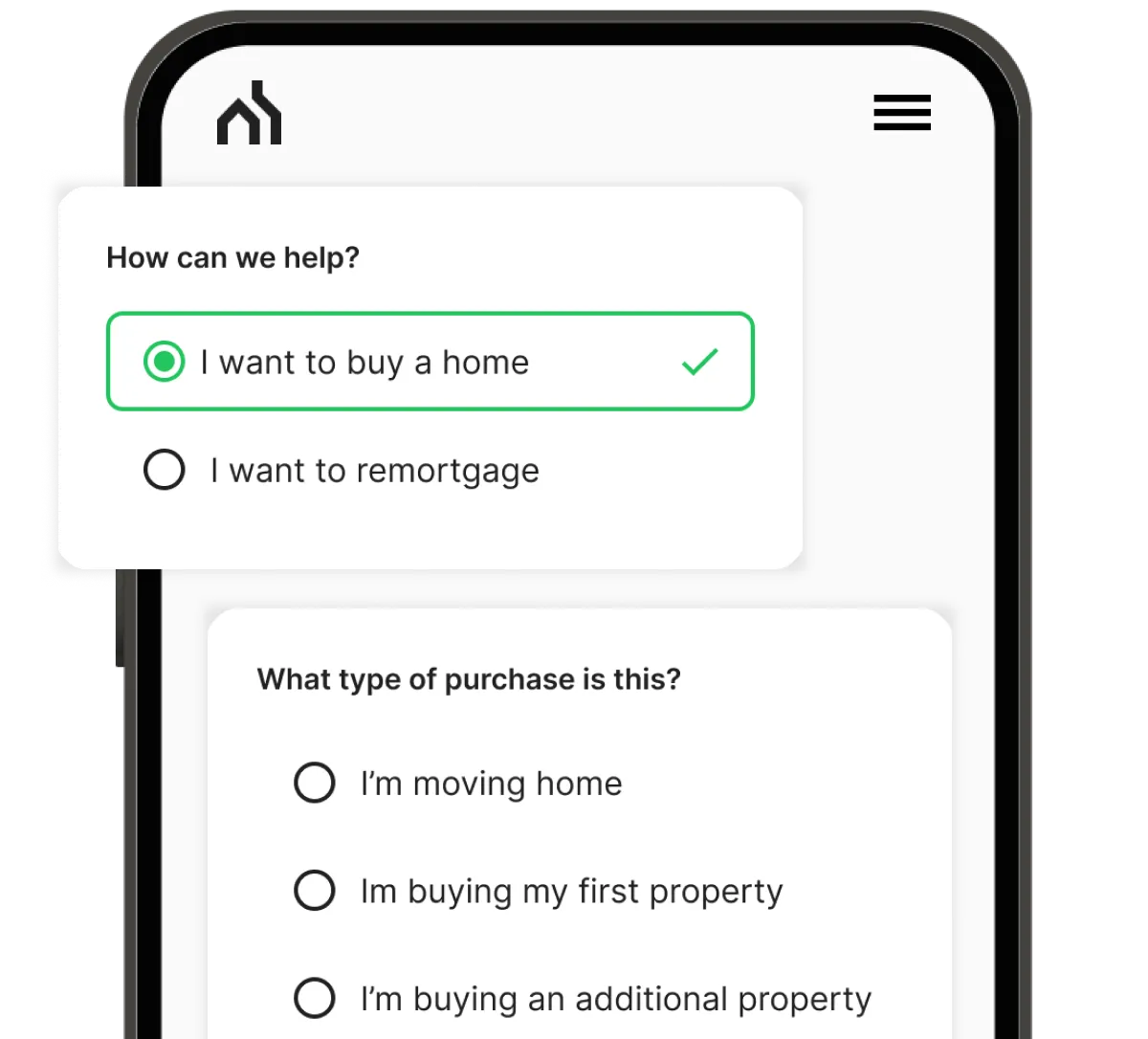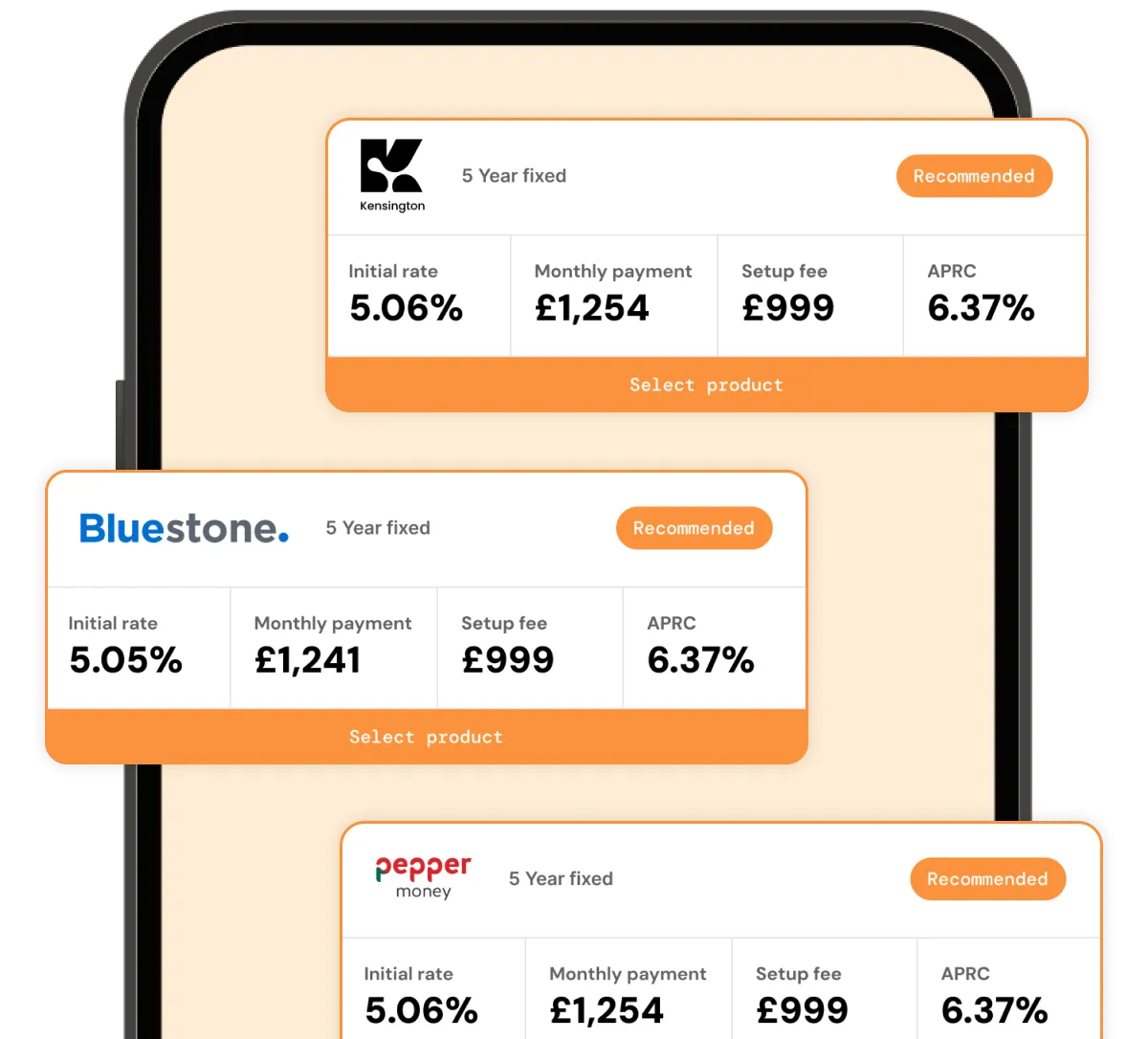Self-Employed Mortgage Calculator
Self-employed and want to know how much you could borrow? You’re in the right place. Our self-employed mortgage calculator can show you how much you might be able to borrow, estimate your monthly repayments and calculate loan-to-value.

How It Works
Three steps to make your mortgage possible - with expert guidance and an innovative process designed to support you every step of the way.
Get Started NowTell Us About You
Fill out a quick 60-second form about your unique situation. It won’t affect your credit score.

Mortgage Match
We have access to over 100 lenders, including options only available through specialist brokers, to find the best fit for you.

Meet Your Experts
Get paired with your dedicated team who'll handle everything from start to finish. Track progress 24/7 in your customer portal - no messy paperwork!

Any questions?
We're a judgement-free zone. If you still have questions, we've heard most of them before. Here are some of them answered by our team of experts.
Yes, it’s possible. It can often feel more difficult to get a mortgage when you work for yourself as most self-employed people have slightly more complex earnings than someone who is employed with salary payslips to show as their proof of income.
When you’re self-employed, it just means the evidence you show to prove you can afford your mortgage repayments will need to be different and involve your business’ certified accounts or your latest SA302 tax calculations and tax year overview.
Find out more in our guide: Getting a Mortgage When You’re Self-Employed.
This will depend on a few different things:
your income
your outgoings
your credit history
the kind of property you want to buy.
You shouldn’t be able to borrow any less if you’re self-employed compared to if you’re full-time employed. The only difference is the proof of income you’ll need to provide in order to support your application for the amount you want to borrow.
If you’re self-employed this will likely be through the last two to three years certified business accounts or your latest SA302 tax calculations and tax year overview.
No, not at all. You shouldn’t have to pay higher interest just because you’re self-employed.
However, if you’re only recently self-employed, you may be restricted on the number of mortgage lenders willing to consider your application. This could mean you’ll have less chance of qualifying for the most competitive rates.
Information
Tools & Guides
Haysto, a trading style of Haysto Ltd, is an appointed representative of HL Partnership Limited, which is authorised and regulated by the Financial Conduct Authority.Registered Office: Haysto, Crystal House, 24 Cattle Market Street, Norwich, NR1 3DY. Registered in England and Wales No. 12527065
There may be a fee for mortgage advice. The exact amount depends upon your circumstances but will range from £599 to £1599 and this will be discussed and agreed with you at the earliest opportunity.
The guidance and/or information contained within this website is subject to the UK regulatory regime and is therefore targeted at consumers based in the UK.
Your home may be repossessed if you do not keep up repayments on your mortgage.








